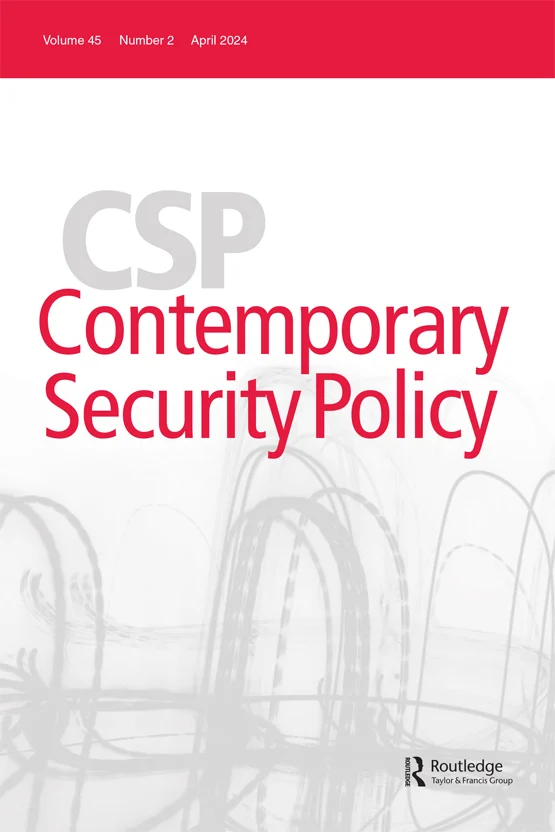A fragile public preference for cyber strikes: Evidence from survey experiments in the United States, United Kingdom, and Israel
IF 5
1区 社会学
Q1 INTERNATIONAL RELATIONS
引用次数: 20
Abstract
ABSTRACT To what extent does the public support the use of cyber weapons? We propose that public exposure to the destructive potential of cyber-attacks will dispel the clear cross-national preference for cyber strikes. To test this, we conducted two survey experiments (n = 2,585) that examine support for cyber versus conventional military strikes in the United States, United Kingdom, and Israel. In study 1, we exposed respondents to television news reports depicting various forms of terror attacks, and then measured the subsequent support for retaliatory options. Findings indicate that the high public support for deploying cyber weapons dissipated entirely among respondents exposed to lethal cyber-attacks. In study 2, we probed this vanishing support, finding that exposure to destructive cyber-attacks undercuts the perception of cyber as a less lethal domain, therefore diminishing its appeal. We conclude by discussing how the fragile public preference for cyber weapons encourages military escalation in the short-term.公众对网络攻击的脆弱偏好:来自美国、英国和以色列调查实验的证据
摘要公众在多大程度上支持使用网络武器?我们建议,公众暴露于网络攻击的破坏性潜力将消除跨国家对网络攻击的明显偏好。为了验证这一点,我们进行了两个调查实验(n = 2585)审查了对美国、英国和以色列网络与常规军事打击的支持。在研究1中,我们让受访者接触描述各种形式恐怖袭击的电视新闻报道,然后衡量随后对报复选择的支持程度。调查结果表明,公众对部署网络武器的高度支持在遭受致命网络攻击的受访者中完全消失。在研究2中,我们探讨了这种正在消失的支持,发现暴露在破坏性网络攻击中会削弱人们对网络是一个杀伤力较小的领域的看法,从而削弱其吸引力。最后,我们讨论了公众对网络武器的脆弱偏好如何在短期内鼓励军事升级。
本文章由计算机程序翻译,如有差异,请以英文原文为准。
求助全文
约1分钟内获得全文
求助全文
来源期刊

Contemporary Security Policy
Multiple-
CiteScore
14.60
自引率
6.80%
发文量
22
期刊介绍:
One of the oldest peer-reviewed journals in international conflict and security, Contemporary Security Policy promotes theoretically-based research on policy problems of armed conflict, intervention and conflict resolution. Since it first appeared in 1980, CSP has established its unique place as a meeting ground for research at the nexus of theory and policy.
Spanning the gap between academic and policy approaches, CSP offers policy analysts a place to pursue fundamental issues, and academic writers a venue for addressing policy. Major fields of concern include:
War and armed conflict
Peacekeeping
Conflict resolution
Arms control and disarmament
Defense policy
Strategic culture
International institutions.
CSP is committed to a broad range of intellectual perspectives. Articles promote new analytical approaches, iconoclastic interpretations and previously overlooked perspectives. Its pages encourage novel contributions and outlooks, not particular methodologies or policy goals. Its geographical scope is worldwide and includes security challenges in Europe, Africa, the Middle-East and Asia. Authors are encouraged to examine established priorities in innovative ways and to apply traditional methods to new problems.
 求助内容:
求助内容: 应助结果提醒方式:
应助结果提醒方式:


